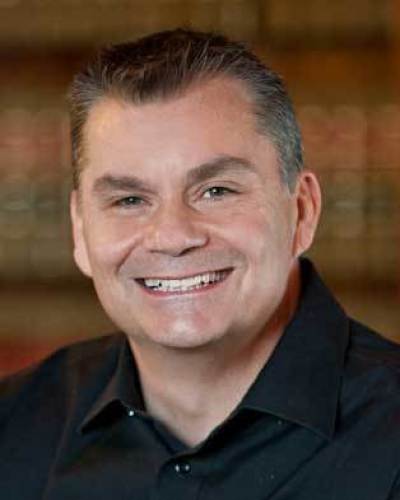When God says stop praying
The Bible says we are to “pray without ceasing” (1 Thess. 5:17); that we should be “devoted to prayer” (Rom. 12:12; Col. 4:2) and “pray at all times in the Spirit” (Eph. 6:18), with one of Jesus’ parables specifically focused on the fact that we “ought always to pray and not lose heart” (Luke 18:1).
And yet, surprising as it may be to hear, there are a number of places in Scripture where God says to stop praying. Given the verses above, what gives?
Let’s take a look at three cases that stand out to me.

The already-supplied believer
I’m sure you know the story of Israel crossing the Red Sea that’s chronicled in Exodus 14 very well. You remember how Pharaoh had a what-have-I-done moment about letting Israel go and pursued them into the desert.
We’re told, “As Pharaoh drew near, the sons of Israel looked, and behold, the Egyptians were marching after them, and they became very frightened; so the sons of Israel cried out to the Lord” (Ex. 14:12).
At first blush, that seems like a reasonable thing to do; however, earlier in the book, God had promised the people His protection and that He would specifically take care of Pharaoh and his army. Israel already had God’s promises and everything they needed, so instead of praying, they needed to act.
This is why we read, “Then the Lord said to Moses, “Why are you crying out to Me? Tell the sons of Israel to go forward” (Ex. 14:15). In other words, “Get up and do what you’re supposed to.”
As believers, we’ve already been given so much by God that we fail to employ and yet we pray for it as if we didn’t already possess it. As just one example — consider the Holy Spirit who has been given to every Christian (John 14:17).
John MacArthur reminds us: “If you want comfort, God gives the Comforter. If you want help, He gives you the Helper. If you want truth, He gives you the Spirit of Truth. If you want guidance, He gives you the Guide. If you want power, He gives you the Spirit of Power. If you want wisdom, He gives you the Spirit of Wisdom. You ask for patience, love, kindness, joy, peace, etc., and He gives you the Spirit who bears that fruit. You ask to be useful in service to God, He gives you the Spirit who bestows gifts for service.”
The hardened unrepentant
Three times in the Old Testament God tells Jeremiah, “As for you, do not pray for this people, and do not lift up cry or prayer for them, and do not intercede with Me; for I do not hear you” (Jer. 7:16; cf. 11:14, 14:11). The reason God commanded the prophet not to plead for Israel was because they were unrepentant in their sin and so God had determined to give them over to judgment.
We see this in the New Testament as well. Concerning the Pharisees, Jesus told His disciples, “Let them alone; they are blind guides of the blind. And if a blind man guides a blind man, both will fall into a pit” (Matt. 15:14). It may sound odd to read Christ telling His disciples not to evangelize someone, but it’s likely because He knows it will be throwing pearls before swine (Matt. 7:6).
The 'thoughts and prayers' only believer
When a tragedy occurs today, it’s common for people to say that those affected are “in their thoughts and prayers.” Make no mistake, as Christians, we know how effective prayer can be, but to those outside the Church, such a declaration is increasingly being viewed as meaningless where practical help is concerned.
Addressing the topic in an article for CNN, A.J. Willingham says: “The further it’s ['thoughts and prayers'] embedded in our post-tragedy lexicon, the more it’s mocked as a form of civilian slacktivism, and more recently as a form of political obfuscation.”
The book of James says, “What use is it, my brethren, if someone says he has faith but he has no works? Can that faith save him? If a brother or sister is without clothing and in need of daily food, and one of you says to them, “Go in peace, be warmed and be filled,” and yet you do not give them what is necessary for their body, what use is that?” (James 2:14-16).
John says simply in his first epistle: “Little children, let us not love with word or with tongue, but in deed and truth” (3:18).
Don’t misunderstand — I’m not suggesting we don’t pray for others. Rather, I’m saying we don’t stop at prayer if it is within our power to pragmatically assist as well.
Historian Antonia Tripolitis argues that Christianity’s sense of community and its universal charity were a major reason, if not the most important single reason, for its growth and subsequent victory over the empire and other competing religions and philosophies of that day. They changed the world by living out the statement commonly attributed to St. Francis: “Preach the gospel — if necessary, use words.”
We can do the same thing today.
Robin Schumacher is an accomplished software executive and Christian apologist who has written many articles, authored and contributed to several Christian books, appeared on nationally syndicated radio programs, and presented at apologetic events. He holds a BS in Business, Master's in Christian apologetics and a Ph.D. in New Testament. His latest book is, A Confident Faith: Winning people to Christ with the apologetics of the Apostle Paul.





























